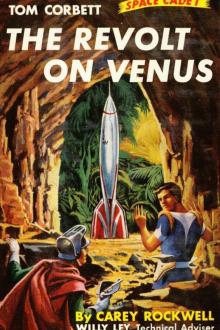Hypatia — or New Foes with an Old Face by Charles Kingsley (e book reader TXT) 📗

- Author: Charles Kingsley
Book online «Hypatia — or New Foes with an Old Face by Charles Kingsley (e book reader TXT) 📗». Author Charles Kingsley
‘Let me not, O men of Macedonia, suppose that you can be disturbed from that equanimity which befits politicians, by so light an accident as the caprice of a dancer. The spectacle which I have had the honour and delight of exhibiting to you—(Roars and applause from the liberated prisoners and the young gentlemen)—and on which it seemed to me you have deigned to look with not altogether unkindly eyes—(Fresh applause, in which the Christian mob, relenting, began to join)—is but a pleasant prelude to that more serious business for which I have drawn you here together. Other testimonials of my good intentions have not been wanting in the release of suffering innocence, and in the largess of food, the growth and natural property of Egypt, destined by your late tyrants to pamper the luxury of a distant court.... Why should I boast?—yet even now this head is weary, these limbs fail me, worn out in ceaseless efforts for your welfare, and in the perpetual administration of the strictest justice. For a time has come in which the Macedonian race, whose boast is the gorgeous city of Alexander, must rise again to the political pre-eminence which they held of old, and becoming once more the masters of one-third of the universe, be treated by their rulers as freemen, citizens, heroes, who have a right to choose and to employ their rulers—Rulers, did I say? Let us forget the word, and substitute in its place the more philosophic term of ministers. To be your minister—the servant of you all—To sacrifice myself, my leisure, health, life, if need be, to the one great object of securing the independence of Alexandria—This is my work, my hope, my glory—longed for through weary years: now for the first time possible by the fall of the late puppet Emperor of Rome. Men of Macedonia, remember that Honorius reigns no more! An African sits on the throne of the Caesars! Heraclian, by one decisive victory, has gained, by the favour of—of Heaven, the imperial purple; and a new era opens for the world. Let the conqueror of Rome balance his account with that Byzantine court, so long the incubus of our Trans-Mediterranean wealth and civilisation; and let a free, independent, and united Africa rally round the palaces and docks of Alexandria, and find there its natural centre of polity and of prosperity.’
A roar of hired applause interrupted him and not a few, half for the sake of his compliments and fine words, half from a natural wish to be on the right side—namely, the one which happened to be in the ascendant for the time being—joined.... The city authorities were on the point of crying, ‘Imperator Orestes,’ but thought better of it; and waited for some one else to cry first—being respectable. Whereon the Prefect of the Guards, being a man of some presence of mind, and also not in anywise respectable, pricked up the Prefect of the docks with the point of his dagger, and bade him, with a fearful threat, take care how he played traitor. The worthy burgher roared incontinently—whether with pain or patriotism; and the whole array of respectabilities—having found a Curtius who would leap into the gulf, joined in unanimous chorus, and saluted Orestes as Emperor; while Hypatia, amid the shouts of her aristocratic scholars, rose and knelt before him, writhing inwardly with shame and despair, and entreated him to accept that tutelage of Greek commerce, supremacy, and philosophy which was forced on him by the unanimous voice of an adoring people....
‘It is false!’ shouted a voice from the highest tiers, appropriated to the women of the lower classes, which made all turn their heads in bewilderment.
‘False! false! you are tricked! He is tricked! Heraclian was utterly routed at Ostia, and is fled to Carthage, with the emperor’s fleet in chase.’
‘She lies! Drag the beast down!’ cried Orestes, utterly thrown off his balance by the sudden check.
‘She? He! I, a monk, brought the news! Cyril has known it—every Jew in the Delta has known it, for a week past! So perish all the enemies of the Lord, caught in their own snare!’
And bursting desperately through the women who surrounded him, the monk vanished.
An awful silence fell on all who heard. For a minute every man looked in his neighbour’s face as if he longed to cut his throat, and get rid of one witness, at least, of his treason. And then arose a tumult, which Orestes in vain attempted to subdue. Whether the populace believed the monk’s words or not, they were panic-stricken at the mere possibility of their truth. Hoarse with denying, protesting, appealing, the would-be emperor had at last to summon his guards around him and Hypatia, and make his way out of the theatre as best he could; while the multitude melted away like snow before the rain, and poured out into the streets in eddying and roaring streams, to find every church placarded by Cyril with the particulars of Heraclian’s ruin.
CHAPTER XXIII: NEMESIS
That evening was a hideous one in the palace of Orestes. His agonies of disappointment, rage, and terror were at once so shameful and so fearful, that none of his slaves dare approach him; and it was not till late that his confidential secretary, the Chaldean eunuch, driven by terror of the exasperated Catholics, ventured into the tiger’s den, and represented to him the immediate necessity for action.
What could he do? He was committed—Cyril only knew how deeply. What might not the wily archbishop have discovered? What might not he pretend to have discovered? What accusations might he not send off on the spot to the Byzantine Court?
‘Let the gates be guarded, and no one allowed to leave the city,’ suggested the Chaldee.
‘Keep in monks? as well keep in rats! No; we must send off a counter-report, instantly.’
‘What shall I say, your Excellency?’ quoth the ready scribe, pulling out pen and inkhorn from his sash.
‘What do I care? Any lie which comes to hand. What in the devil’s name are you here for at all, but to invent a lie when I want one?’
‘True, most noble,’ and the worthy sat meekly down to his paper.... but did not proceed rapidly.
‘I don’t see anything that would suit the emergency, unless I stated, with your august leave, that Cyril, and not you, celebrated the gladiatorial exhibition; which might hardly appear credible?’
Orestes burst out laughing, in spite of himself. The sleek Chaldee smiled and purred in return. The victory was won; and Orestes, somewhat more master of himself, began to turn his vulpine cunning to the one absorbing question of the saving of his worthless neck.
‘No, that would be too good. Write, that we had discovered a plot on Cyril’s part to incorporate the whole of the African churches (mind





Comments (0)